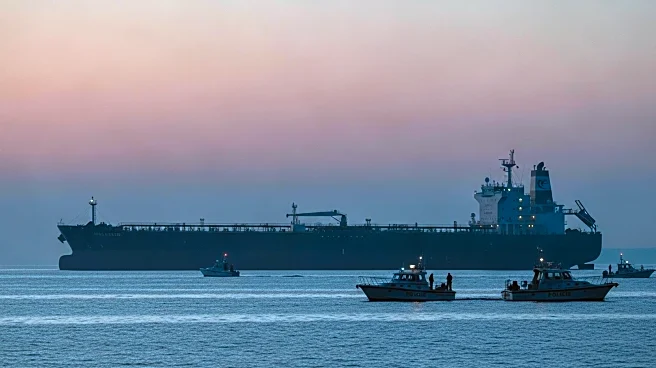What's Happening?
French authorities have detained two crew members of a Russian-linked tanker, Boracay, anchored off the western coast of France. The vessel, flagged by Benin, is suspected of being part of Russia's 'shadow fleet' used to circumvent European Union sanctions. The investigation, led by the prosecutor's office in Brest, focuses on the crew's failure to provide proof of the vessel's nationality and refusal to comply with instructions. The maximum penalty for these offenses is one year in prison and a €150,000 fine. The tanker, blacklisted by the EU, is also suspected of involvement in drone overflights in Denmark.
Why It's Important?
This investigation highlights ongoing efforts by European nations to enforce sanctions against Russia, particularly in the wake of its 2022 invasion of Ukraine. The EU has targeted aging tankers used by Russia to bypass oil export restrictions, aiming to weaken Moscow's financial resources. The detention of the Boracay's crew underscores the seriousness with which France and other EU countries are addressing these violations. The case also raises concerns about maritime security and the potential use of commercial vessels for covert operations.
What's Next?
French authorities will continue their investigation into the Boracay, with potential legal proceedings against the detained crew members. The case may prompt further scrutiny of other vessels suspected of being part of Russia's 'shadow fleet.' European leaders are likely to discuss additional measures to strengthen maritime security and prevent sanction evasion. The outcome of this investigation could influence future EU policies on sanctions enforcement and maritime surveillance.
Beyond the Headlines
The incident raises broader questions about international maritime law and the challenges of enforcing sanctions in global waters. It also highlights the geopolitical tensions between Russia and Western nations, with maritime security becoming a focal point in the ongoing conflict. The use of commercial vessels for potential military or espionage activities could lead to increased regulation and monitoring of international shipping routes.










